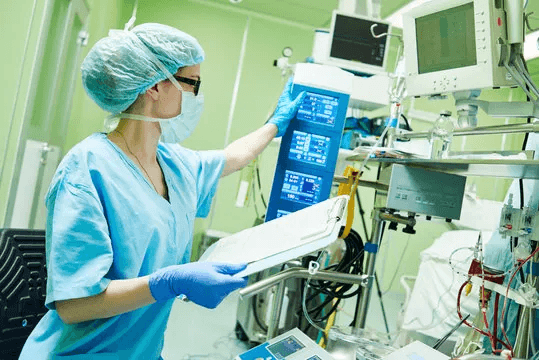Optimize Success: Prioritize Access Site Management in Endovascular Procedures
Unlocking success in endovascular procedures demands equal attention to both target organ outcomes and access site management, a crucial yet often disregarded aspect. We are dedicated to revolutionizing medical device solutions for automated access site management, ensuring optimal procedural outcomes and patient care.
Dynamically changing landscape of interventional cardiovascular procedures
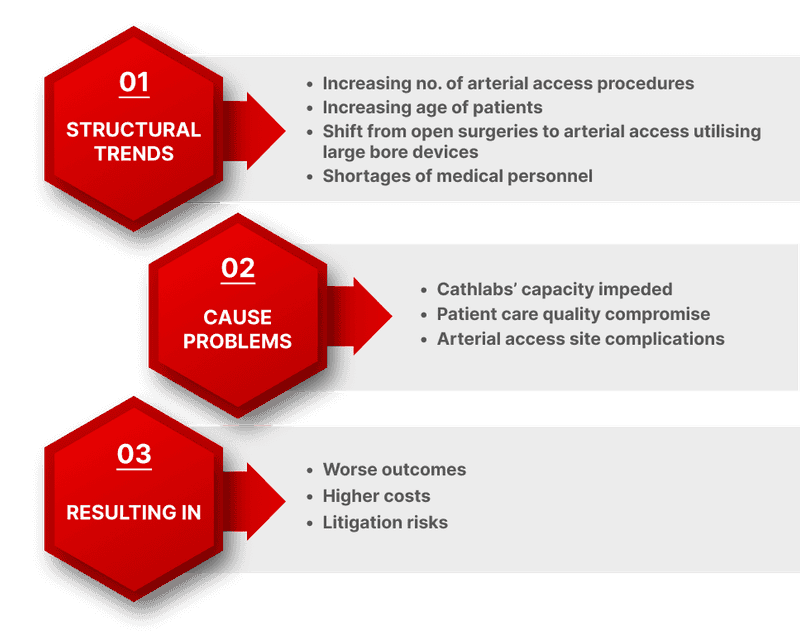
The Problem
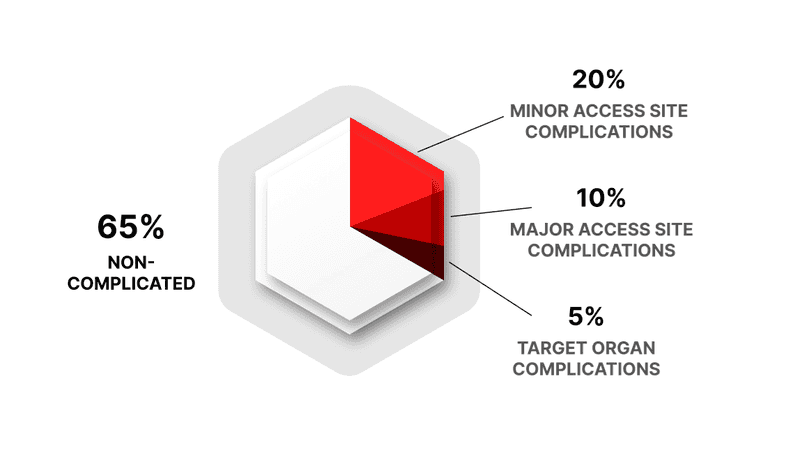
"the procedure went well
but the patient didn't survive"
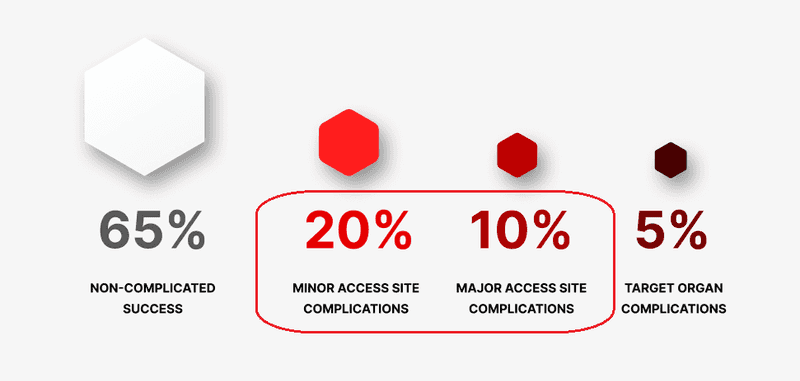
Around 65% of interventional cardiovascular procedures are uncomplicated. Of the remaining 35%, only 5% are related to the end organ, while about 30% are related to the access site, with 10% being major access site complications.
Source: EuroIntervention. 2019;14(15):e1558-e1565, Circulation: cardiovascular Interventions. 2019;12:e008203.
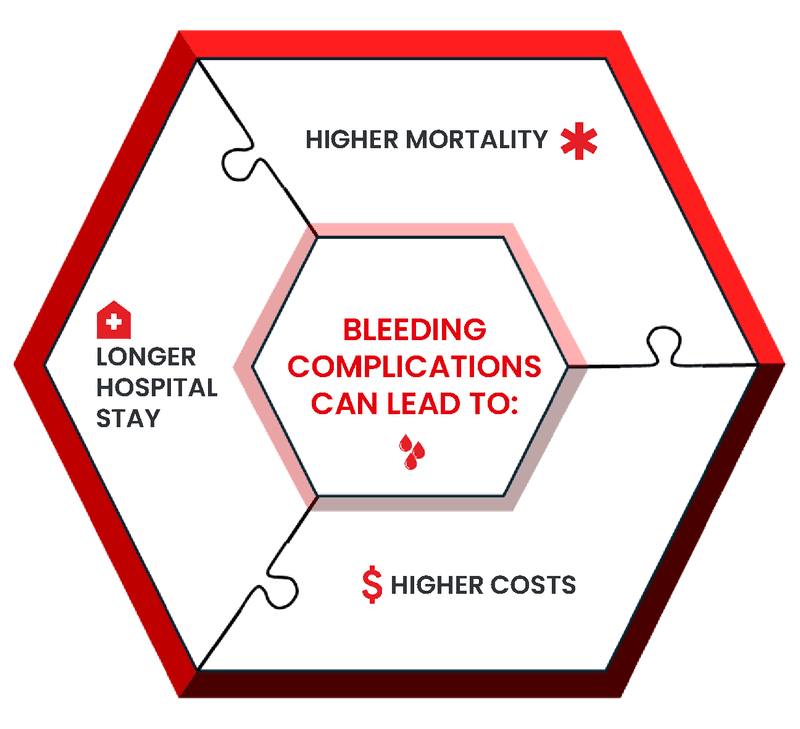
Mortality, length of stay, and cost implications of procedural bleeding after percutaneous interventions using large-bore catheters
Periprocedural bleeding is common among patients who underwent transcatheter intervention using large-bore catheters and was associated with a statistically significant increase in mortality, length of stay, and cost.
Source: JAMA Cardiol. 2017;2(7):798-802. doi:10.1001/jamacardio.2017.0265.
The Solution
Automate access site management to optimize outcomes and costs
Our innovative solution offers real-time monitoring and automated management of access sites, reducing personnel time and enhancing procedural outcomes. Experience efficiency and excellence in endovascular procedures with our cutting-edge technology.
Automatic closure device
Simpliactive bots & platform
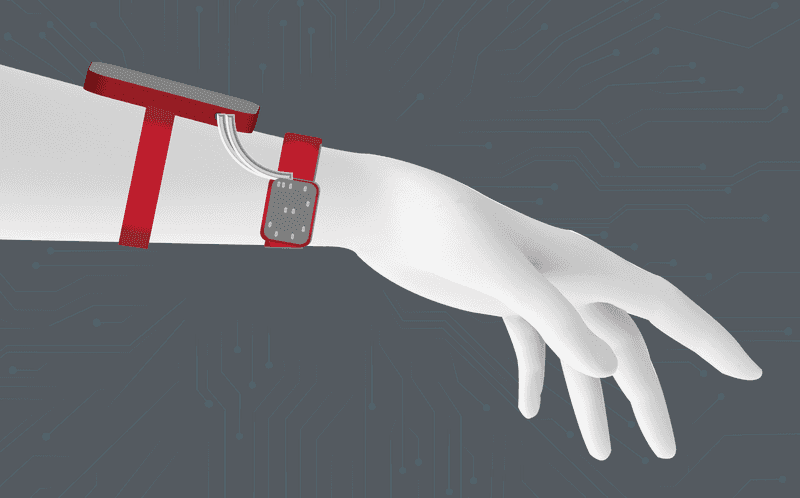
Simpliactive system mimics manual compression and bleeding control throughout the healing process
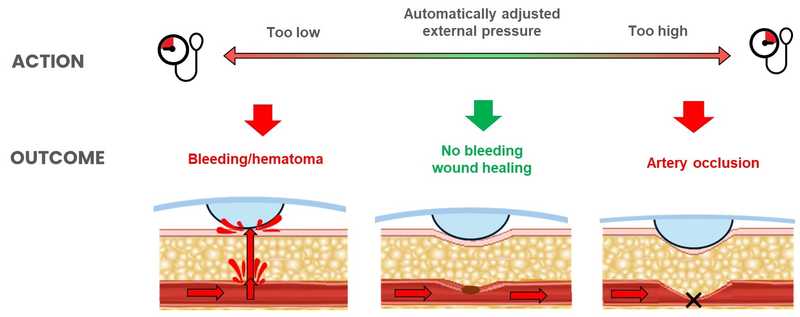
First in class arterial access site management bot
Unique modular technology adaptable for various arterial vascular access sites
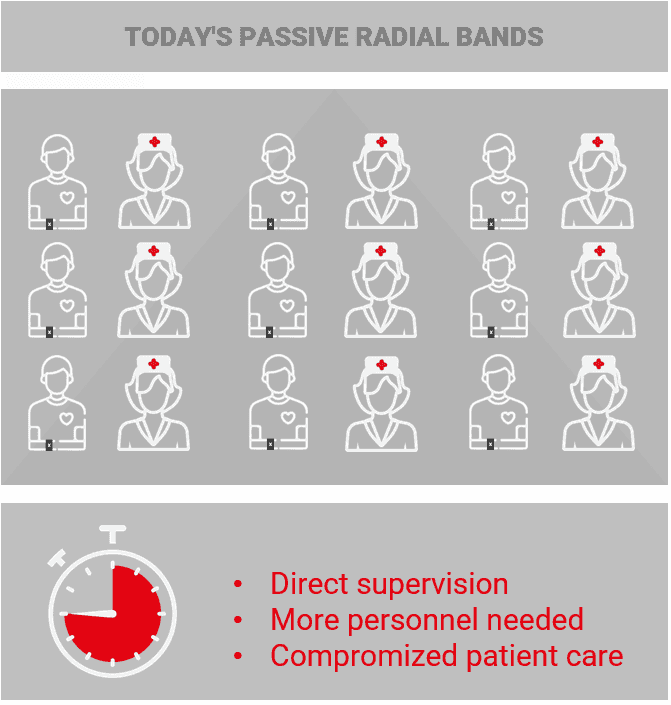
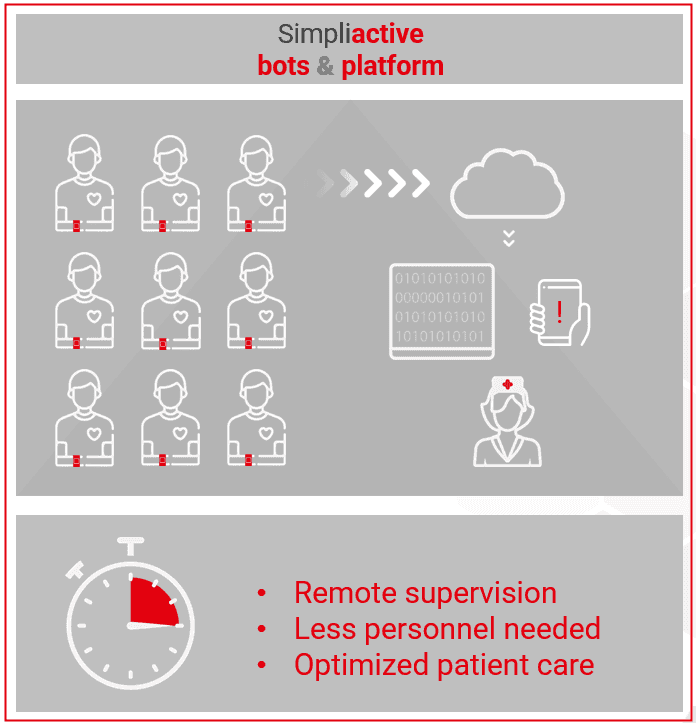
Our Patient-Focused Innovative Technology
- Aimed to reduce mortality
- Improving workflow
- Reducing costs
- Intuitiveness and ease of use
